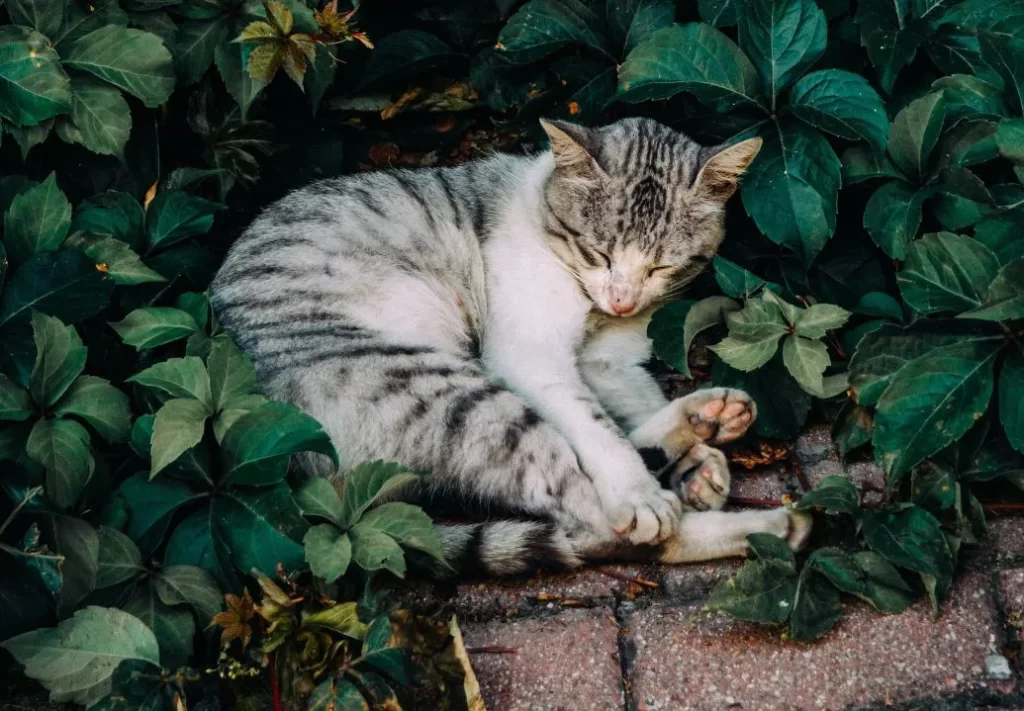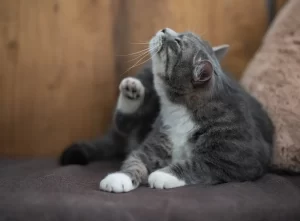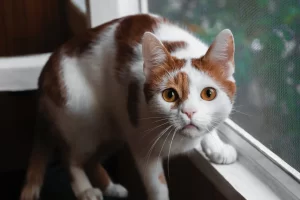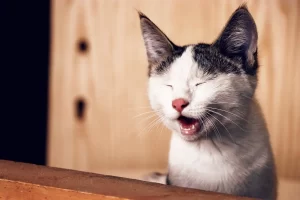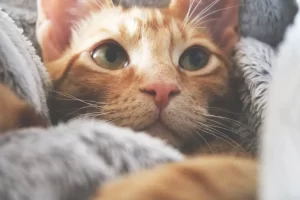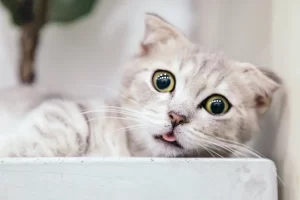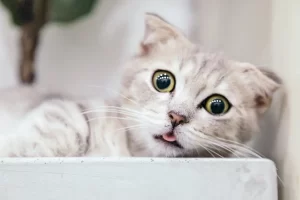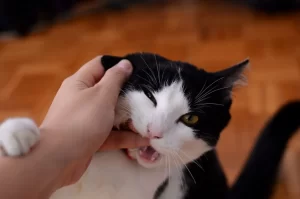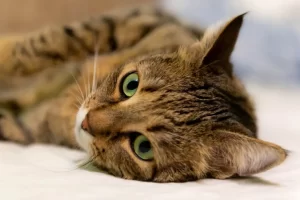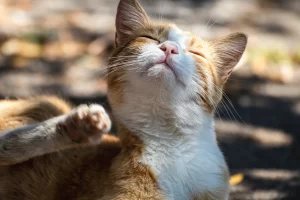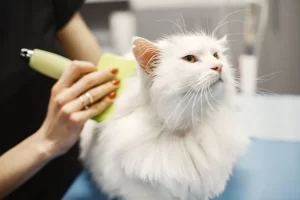Lethargy in cats can be caused by a variety of factors, ranging from physical health issues to emotional and environmental factors. If your cat is showing signs of lethargy, it is important to consult a veterinarian to rule out any underlying medical conditions. In addition to seeking professional help, there are also various home remedies that can be used to help boost your cat’s energy levels and improve its overall well-being. In this article, we will discuss 15 of the most important topics related to home remedies for a lethargic cat, including proper nutrition, exercise, natural supplements, and stress management. We will also highlight the importance of consulting a veterinarian and providing a comfortable living environment for your feline friend.
Table of Contents
ToggleCauses of lethargy in cats
Understanding the causes of lethargy in cats is important in order to properly address the issue and ensure the best outcome for your feline friend. Some common causes of lethargy in cats include:
- Underlying medical conditions such as anemia, infection, or chronic disease
- Parasites such as fleas or ticks can be a source of many diseases including lethargy in cats
- Nutritional deficiencies
- Dehydration
- Inactivity or lack of physical exercise
- Environmental factors such as stress or lack of stimulation
- Medications or other treatments
Aging It’s important to note that some cats may be naturally more sedentary, and what may appear as lethargy may not be a concern. However, if you notice a change in your cat’s activity level or if they are not acting like themselves, it is important to consult a veterinarian to rule out any underlying medical issues and ensure the best course of treatment.
Signs and symptoms of lethargic cat
Identifying the signs of lethargy in cats is important in order to take appropriate action and address the issue promptly. Some common signs of lethargy in cats include:
- Loss of interest in playing, grooming or socializing
- Lack of energy or enthusiasm
- Sleeping more than usual
- Slow or sluggish movements
- Loss of appetite or weight loss
- Difficulty getting up or climbing stairs
- Weakness or muscle wasting
- Poor coat condition
- Constipation or decreased bowel movements
Changes in behavior or attitude It’s important to note that some cats may be naturally more sedentary, and what may appear as lethargy may not be a concern.
Consult a veterinarian before attempting any home remedies
Consulting a veterinarian before attempting any home remedies for a lethargic cat is extremely important. It is essential to rule out any underlying medical conditions that may be causing or contributing to the cat’s lethargy. Some medical conditions, such as anemia or infection, may require specific treatment and management, and attempting home remedies without proper diagnosis and guidance can delay or hinder the cat’s recovery. Additionally, some home remedies may not be appropriate or safe for certain medical conditions and can even cause more harm than good.
Your veterinarian can also help you determine the best course of treatment for your cat, which may include a combination of home remedies and medical intervention. They can also help you monitor your cat’s progress and make any necessary adjustments to its treatment plan. Consulting with a veterinarian will also ensure that your cat is receiving the best care possible and will give you peace of mind that you are doing everything you can to help your feline friend.
Read More: How often do you take a cat to the vet?
Provide proper nutrition and hydration for a lethargic cat
Providing proper nutrition and hydration for a lethargic cat is essential for their overall health and well-being.
Nutrition:
Good nutrition can help boost energy levels and support the cat’s immune system.
It’s important to provide a balanced diet that includes:
- High-quality protein sources such as chicken, fish, and turkey
- Healthy fats like omega-3 and omega-6 fatty acids found in fish oil or flaxseed oil
- Essential vitamins and minerals found in fruits and vegetables such as vitamins A, B, and E, antioxidants, and minerals like zinc and iron.
Hydration:
Proper hydration can help keep the cat’s organs and systems functioning properly.
It’s important to ensure that your cat has access to:
- Fresh, clean water at all times
- Some cats may be picky drinkers, so consider offering water in different bowls or from different sources, such as a water fountain.
- If your cat is not drinking enough water, it can lead to dehydration, which can further contribute to lethargy.
Diet:
Consult with your veterinarian to determine the best diet for your cat based on its specific needs.
Some cats may require special diets for certain medical conditions such as:
- Cats with kidney disease may require a special diet with lower protein or phosphorus content.
- Cats with diabetes may require a diet that is high in protein and low in carbohydrates.
In summary, providing proper nutrition and hydration is crucial for a lethargic cat, it can help boost energy levels, support the immune system and keep their organs and systems functioning properly.
Creating a comfortable and safe living environment for your cat
Ensuring that a lethargic cat has a comfortable and safe living environment is important for their overall well-being. A cat’s living environment can greatly affect its physical and emotional health. Here are a few things to consider when creating a comfortable and safe living environment for a lethargic cat:
- Temperature and Lighting: Cats should have a warm and comfortable place to rest, away from drafts or direct sunlight. It is important to monitor the temperature and humidity in your cat’s living space, as extreme temperatures can make them feel uncomfortable and further contribute to their lethargy.
- Privacy and Safety: Cats need a safe and secure place to retreat from the stresses of their environment. Providing a cozy bed or hiding place for your cat can help them feel more relaxed and secure.
- Exercise and Play: Provide your cat with plenty of opportunities for exercise and play. This can help boost their energy levels, improve their physical and mental well-being, and keep them from becoming bored or stressed.
- Mental Stimulation: Provide your cat with plenty of toys and interactive games to keep them mentally stimulated. This can help keep their minds active and prevent boredom.
- Cleanliness: Keep your cat’s living environment clean and free of clutter. Regularly clean their litter box, bedding, and feeding areas to prevent the buildup of bacteria and odors.
In summary, creating a comfortable and safe living environment for lethargic cats is important for their overall well-being. Consider factors such as temperature, lighting, privacy, safety, exercise, play, mental stimulation, and cleanliness to provide a suitable living space for your cat.
Incorporate exercise and playtime into the cat’s routine
Incorporating exercise and playtime into the routine of a lethargic cat is important for its physical and mental well-being. Regular exercise and play can help boost energy levels, improve their mood, and prevent boredom. Here are a few ways to incorporate exercise and playtime into a lethargic cat’s routine:
- Scheduled playtime: Set aside specific times during the day for playtime with your cat. This can be interactive play using toys such as laser pointers or string, or you can use puzzle feeders to provide mental stimulation while they eat.
- Routine walks: If your cat is comfortable with it, you can take them for a walk on a leash. This can provide a change of scenery and an opportunity for exercise.
- Providing climbing and scratching posts: Climbing and scratching posts can provide your cat with a fun way to exercise and stretch its muscles.
- Incorporating toys: Incorporate toys that promote exercise, such as balls, feather wands, and interactive feeders.
- Indoor hunting: Create an indoor hunting experience for your cat by hiding small treats or toys around the house for them to find.
It’s important to remember that every cat is different and what works for one cat may not work for another.
Boosting energy levels in cats naturally: The benefits of herbs and supplements
Using natural supplements and herbs to boost energy levels can be a beneficial addition to a lethargic cat’s routine. Here are a few herbs and supplements that are commonly used to boost energy levels in cats:
- Catnip: Catnip is a natural herb that can have a stimulating effect on cats. It is often used to increase activity and playfulness in cats. It can be provided as a dried herb or in a catnip-infused toy.
- Milk Thistle: Milk thistle is a herb that is believed to help support liver function and detoxification in cats. It can help boost energy levels by improving overall health. It should be given under the advice and monitoring of a veterinarian.
- Coenzyme Q10: Coenzyme Q10 is a natural antioxidant that is found in many foods, including fatty fish, organ meats, and whole grains. It helps to support energy production in cells, which can help boost energy levels in cats.
- Omega-3 fatty acids: Omega-3 fatty acids are essential fatty acids that are necessary for maintaining overall health in cats. They can help to boost energy levels by supporting the nervous system, cardiovascular system, and immune system. They can be found in fish oil supplements.
- B-vitamins: B-vitamins, including vitamin B1 (thiamine), B2 (riboflavin), B3 (niacin), B5 (pantothenic acid), B6 (pyridoxine), and B12, are essential for maintaining overall health in cats. They can help boost energy levels by supporting the nervous system, cardiovascular system, and immune system.
- Turmeric: Turmeric is a spice that contains a compound called curcumin, which has anti-inflammatory and antioxidant properties. It can help to boost energy levels by reducing inflammation and supporting overall health.
- Iron: Iron is an essential mineral that is important for the production of hemoglobin, which carries oxygen to the body’s cells. A deficiency in iron can cause fatigue and lethargy, so adding iron-rich foods or supplements to the diet may be beneficial.
It’s important to note that while these herbs and supplements can be beneficial, they should not be used as a substitute for proper veterinary care. It’s essential to consult with a veterinarian before using any supplements or herbs, as some may not be safe for cats or may interact with other medications your cat is taking.
Using aromatherapy and essential oils to stimulate energy
Using aromatherapy and essential oils to stimulate energy can be a natural and effective way to boost energy levels in cats. Some popular oils that can be used include:
- Peppermint oil: Peppermint oil can help to stimulate energy and improve focus. It can be used in a diffuser, added to a carrier oil, and applied topically or added to the cat’s bedding.
- Eucalyptus oil: Eucalyptus oil has a refreshing and invigorating scent that can help to boost energy levels. It can be used in a diffuser, added to a carrier oil, and applied topically or added to the cat’s bedding.
- Lemon oil: Lemon oil has a fresh and uplifting scent that can help to improve mood and boost energy levels. It can be used in a diffuser, added to a carrier oil, and applied topically or added to the cat’s bedding.
- Rosemary oil: Rosemary oil can help to stimulate energy and improve focus. It can be used in a diffuser, added to a carrier oil, and applied topically or added to the cat’s bedding.
- Ginger oil: Ginger oil has a warm, invigorating scent that can help to boost energy levels. It can be used in a diffuser, added to a carrier oil, and applied topically or added to the cat’s bedding.
Implementing proper grooming and hygiene practices
Implementing proper grooming and hygiene practices can help to maintain the cat’s overall health and well-being, and can also help to boost energy levels. This includes regular brushing of the cat’s coat to remove tangles and mats, regular nail trims, and regular ear cleaning to prevent ear infections.
Additionally, regular bathing can help to remove dirt and debris from the cat’s coat and can also help to eliminate any potential parasites or fleas. It is also important to keep the cat’s living area clean and free of any potential hazards, such as sharp objects or toxic chemicals.
Regular dental care is also important, including regular teeth brushing and dental check-ups with the vet. This can help to prevent dental problems such as tartar buildup and gum disease, which can cause pain and discomfort and lead to lethargy.
It is also important to keep an eye on the cat’s weight and body condition, as being overweight or underweight can contribute to lethargy. A proper diet and exercise routine can help to maintain a healthy weight.
It’s important to remember that grooming and hygiene practices should be tailored to the individual cat’s needs and preferences, and should be done in a gentle and stress-free manner to ensure the cat’s comfort and well-being.
Managing underlying medical conditions that may contribute to lethargy
Managing underlying medical conditions that may contribute to lethargy is crucial in addressing lethargy in cats. Some common medical conditions that can cause lethargy in cats include:
- Anemia: Cats with anemia may experience fatigue and lethargy due to a lack of red blood cells. This can be caused by blood loss, parasitic infections, or chronic diseases such as cancer.
- Kidney disease: Cats with kidney disease may experience lethargy as a result of the kidney’s inability to filter waste products from the blood effectively. This can lead to a buildup of toxins in the body and cause fatigue.
- Thyroid dysfunction: Cats with thyroid dysfunction may experience fatigue and weight changes. An overactive or underactive thyroid can affect the cat’s metabolism and energy levels.
- Diabetes: Cats with diabetes may experience fatigue as a result of high blood sugar levels. This can also cause weight loss and increased thirst and urination.
- Heart disease: Cats with heart disease may experience fatigue due to the heart’s inability to pump blood effectively throughout the body.
It is important to consult with a veterinarian to identify any underlying medical conditions that may be contributing to the cat’s lethargy. Once a diagnosis has been made, the veterinarian will be able to provide an appropriate course of treatment, which may include medication, dietary changes, or other therapies.
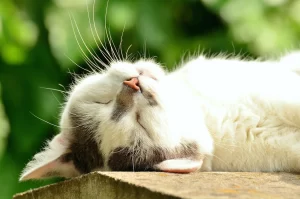
Making sure the lethargic cat is getting enough sleep and rest
Making sure the cat is getting enough sleep and rest is crucial in addressing lethargy in cats. Cats are naturally inclined to sleep for long periods of time, and a lack of sleep can lead to fatigue and decreased energy levels.
It is important to provide the cat with a comfortable and quiet space where it can rest and sleep undisturbed. This can include a cozy bed or a soft blanket in a quiet room.
It’s also important to be mindful of the cat’s sleep schedule and to ensure that they have adequate time to rest and sleep during the day and night. Avoiding disruptions during the cat’s sleep hours, such as loud noises or bright lights, can help to promote restful sleep.
Make sure to provide the cat with opportunities for play and exercise during the day, as this can help to tire them out and promote restful sleep at night.
Remember that cats are natural hunters, so providing interactive toys, puzzles, or even hiding their food around the house can help to keep them mentally and physically stimulated.
It’s important to be mindful of the cat’s sleep schedule and to ensure that they have adequate time to rest and sleep. This, along with providing a comfortable and quiet space, can help to promote restful sleep and reduce lethargy.
Manage stress or anxiety that may be causing lethargy
Identifying and managing stress or anxiety that may be causing lethargy is crucial in addressing lethargy in cats. Stress and anxiety can affect cats in a variety of ways, and can lead to fatigue, decreased appetite, and decreased energy levels.
It is important to identify the potential sources of stress and anxiety for your cat. Common sources of stress and anxiety in cats include changes in their environment, the presence of other animals, or changes in the household routine.
Once the source of stress and anxiety has been identified, it is important to take steps to manage it. This can include:
- Providing a comfortable and safe living environment for the cat, such as a quiet room or a cozy bed.
- Incorporating interactive toys and puzzles into the cat’s routine to promote mental stimulation and reduce anxiety.
- Using pheromone sprays or diffusers to create a calming environment.
- Consulting with a veterinarian or a behaviorist to provide additional support and guidance on managing stress and anxiety.
It’s also important to provide regular grooming and hygiene practices as well as providing proper nutrition and hydration, as well as regular exercise and playtime.
Avoiding common household toxins that may be harmful to the cat
Avoiding common household toxins that may be harmful to the cat is an important step in addressing lethargy in cats. Many common household items can be toxic to cats if ingested or inhaled and can lead to a variety of health issues, including lethargy.
Examples of common household toxins that should be avoided include:
- Cleaning products: Many cleaning products, such as bleach and ammonia, can be toxic to cats if ingested or inhaled. It’s important to keep these products out of reach and to use them in well-ventilated areas.
- Plants: Some common household plants, such as lilies, can be toxic to cats if ingested. It’s important to research the plants in your home and remove any that may be harmful.
- Pesticides: Pesticides, such as rat poison, can be toxic to cats if ingested. It’s important to use alternative methods of pest control, such as traps, and to keep pesticides out of reach.
- Medications: Many medications, including over-the-counter medications, can be toxic to cats if ingested. It’s important to keep all medications out of reach and to consult with a veterinarian before giving any medication to your cat.
- Alcohol: Alcohol can be toxic to cats if ingested, even in small amounts. It’s important to keep all alcohol out of reach and to prevent access to any open containers.
Herbal remedies for lethargic cat
Herbal remedies can be a natural way to address various health issues in cats, including lethargy. However, it’s important to consult with a veterinarian before giving any herbal remedies to your cat, as they can provide guidance on safe dosages and potential interactions with any other medications your cat may be taking.
Here are some examples of herbal remedies that have been traditionally used to address lethargy in cats:
- Milk thistle: This herb is believed to have liver-protective properties and may be beneficial for cats with liver disease. This herb is typically available in capsule or liquid form.
- Astragalus: This herb is believed to have immune-boosting properties and may be beneficial for cats with chronic illnesses. This herb is typically available in capsule or liquid form.
- Turmeric: This herb is believed to have anti-inflammatory properties and may be beneficial for cats with chronic pain or arthritis. This herb is typically available in capsule or liquid form.
- Echinacea: This herb is believed to have immune-boosting properties and may be beneficial for cats with chronic illnesses. This herb is typically available in capsule or liquid form.
- Ginkgo biloba: This herb is believed to improve blood flow and may be beneficial for cats with cognitive decline. This herb is typically available in capsule or liquid form.
Remember that herbs can have side effects and may interact with other medications your cat may be taking.
Choosing the right vet for your cat
When dealing with a lethargic cat, it’s important to consult with a veterinarian for proper diagnosis and treatment. It’s recommended to visit a veterinarian who has experience with feline medicine and can provide specialized care for your cat.
If your cat has a specific medical condition that may be contributing to its lethargy, such as anemia or hypothyroidism, it might be beneficial to visit a veterinarian with experience in that specific area.
If your cat is displaying signs of stress or anxiety, it’s also advisable to visit a veterinarian with experience in feline behavior, as they may be able to provide additional support and guidance on managing these factors.
It’s also important to consult with a veterinarian if you’re considering using any herbal supplements or essential oils to address your cat’s lethargy, as they can provide guidance on safe dosages and potential interactions with any other medications your cat may be taking.
the costs of visiting a Veterinarian for your cat
The costs associated with visiting a veterinarian for a lethargic cat can vary depending on several factors such as the location of the veterinarian, their experience level, and the type of treatment or services needed. Some examples of costs that may be associated with different steps of visiting a veterinarian include the initial consultation fee which can range from $50 to $200, diagnostic testing such as blood tests, X-rays, and other diagnostic tests that may cost anywhere from $50 to $300 or more, treatment such as medications, supplements and other treatments that can vary widely in cost and follow-up visits to monitor the cat’s progress that can cost anywhere from $50 to $150. It is important to consult with your veterinarian and check your pet insurance for a more accurate estimate of the costs.

